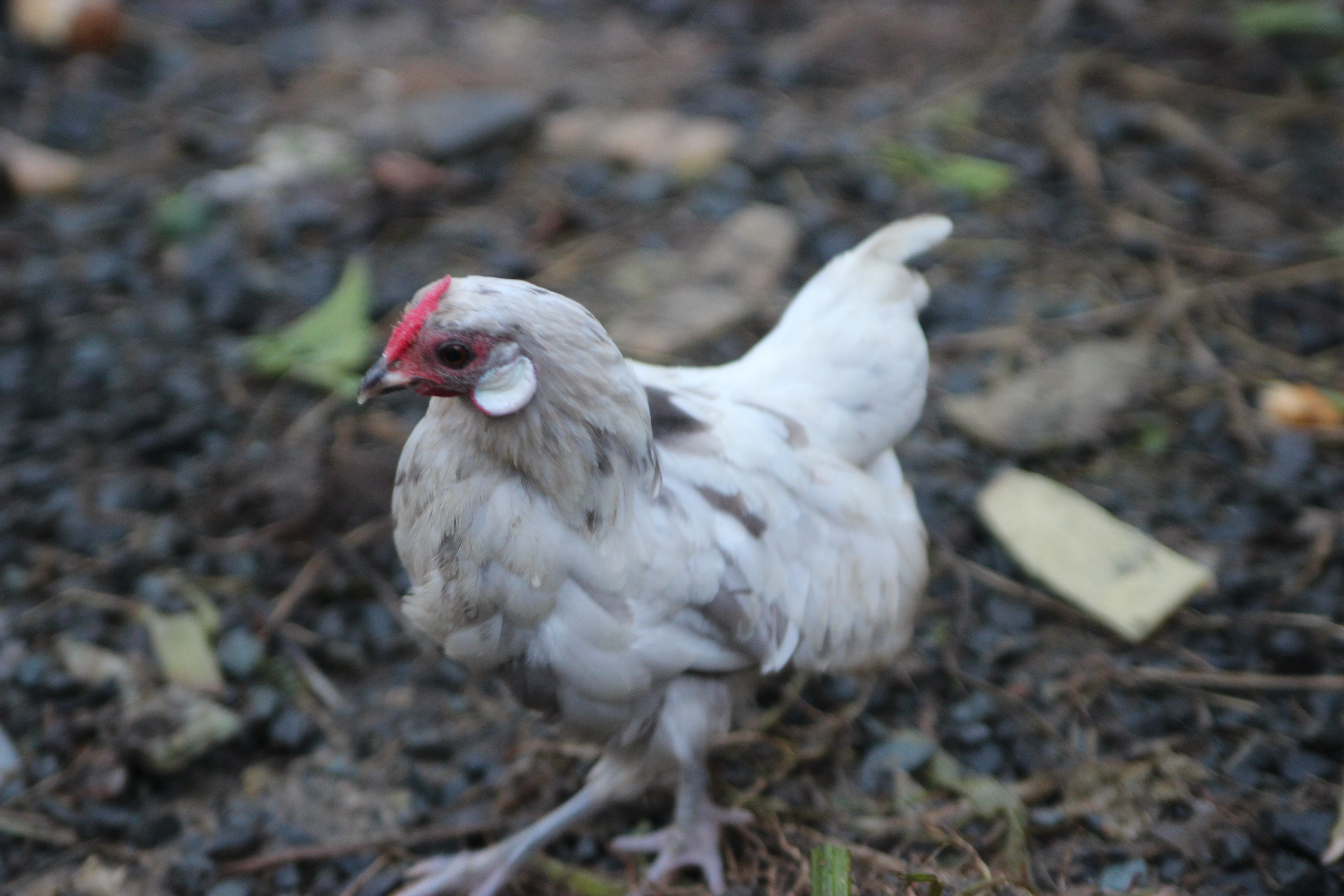- Proceed with caution: Raising chickens can be addicting, and you are not only at risk for “chicken math,” they are the gateway animal of farming. Ducks, quail, goats, and other livestock may follow.
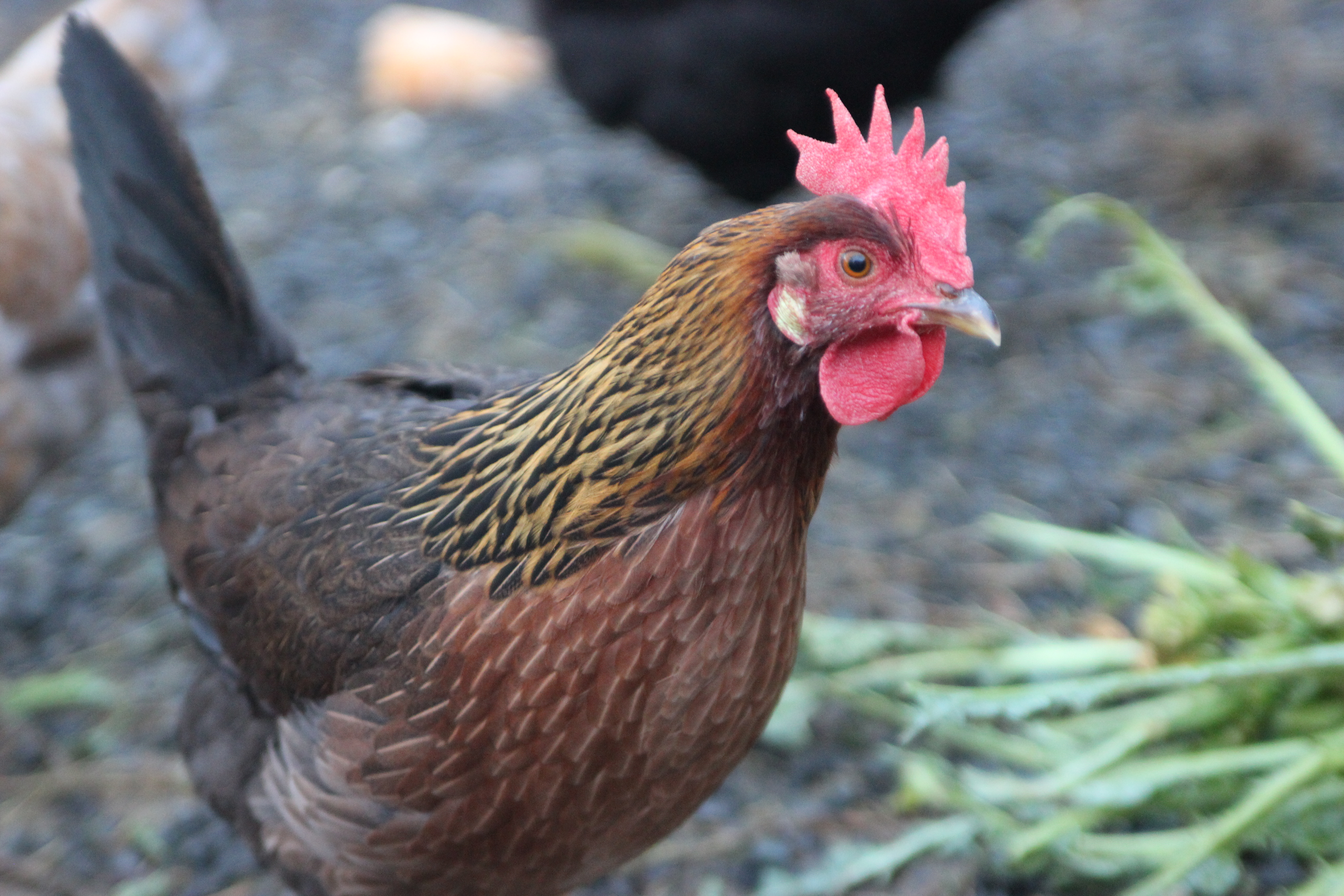
- Protection is Key. There are many natural predators of chickens which may try and attack, and eat your chickens. This means that their coop needs to be predator proof, and that just in case a predator does get into the pen, that you lock your chickens in their coop at night. I have read that a racoon can figure out any latch that a two year old human can open, so beware. Other tools that can be used to protect poultry include predator eyes, live traps, or electrical fencing or nets.
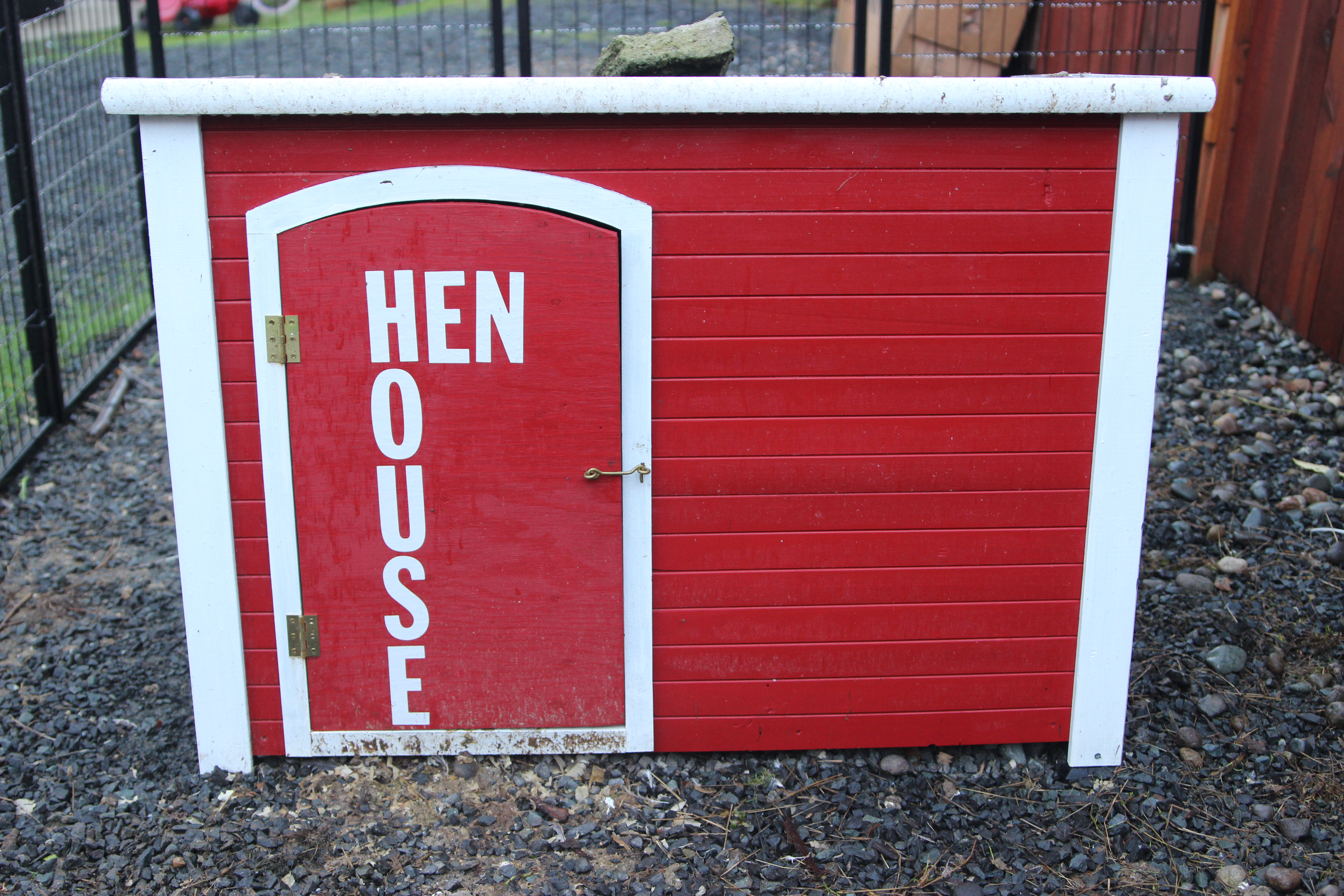
- Diet: Chickens need a layer pellet if they are laying eggs. If they are not yet old enough to lay, then starter crumble is best. The difference is the amount of protein, and calcium in each. Laying chickens need large amounts of calcium for shell strength. Another way in which to add calcium is to feed the chickens oyster shells. These can be purchased at a feed store and only need to be given to your chickens occasionally. Chickens will usually only eat these if they are needing it in their diet. Chickens also enjoy treats such as vegetable, and fruit scraps. I also give my feathery ladies any weeds that I pull, cooked oatmeal, or sprouted rye.


4. Getting down to the grit. Chickens do not digest their food the same way that other animals do. The food first goes into their crop where they have small stones which help to grind up their dinner. This grit is usually ingested by the chicken finding small stones and eating them. If the chicken is not free ranged, then it is up to the owner to buy some grit and put it in their feeding or roaming area. This like the oyster shells, is extremely inexpensive.
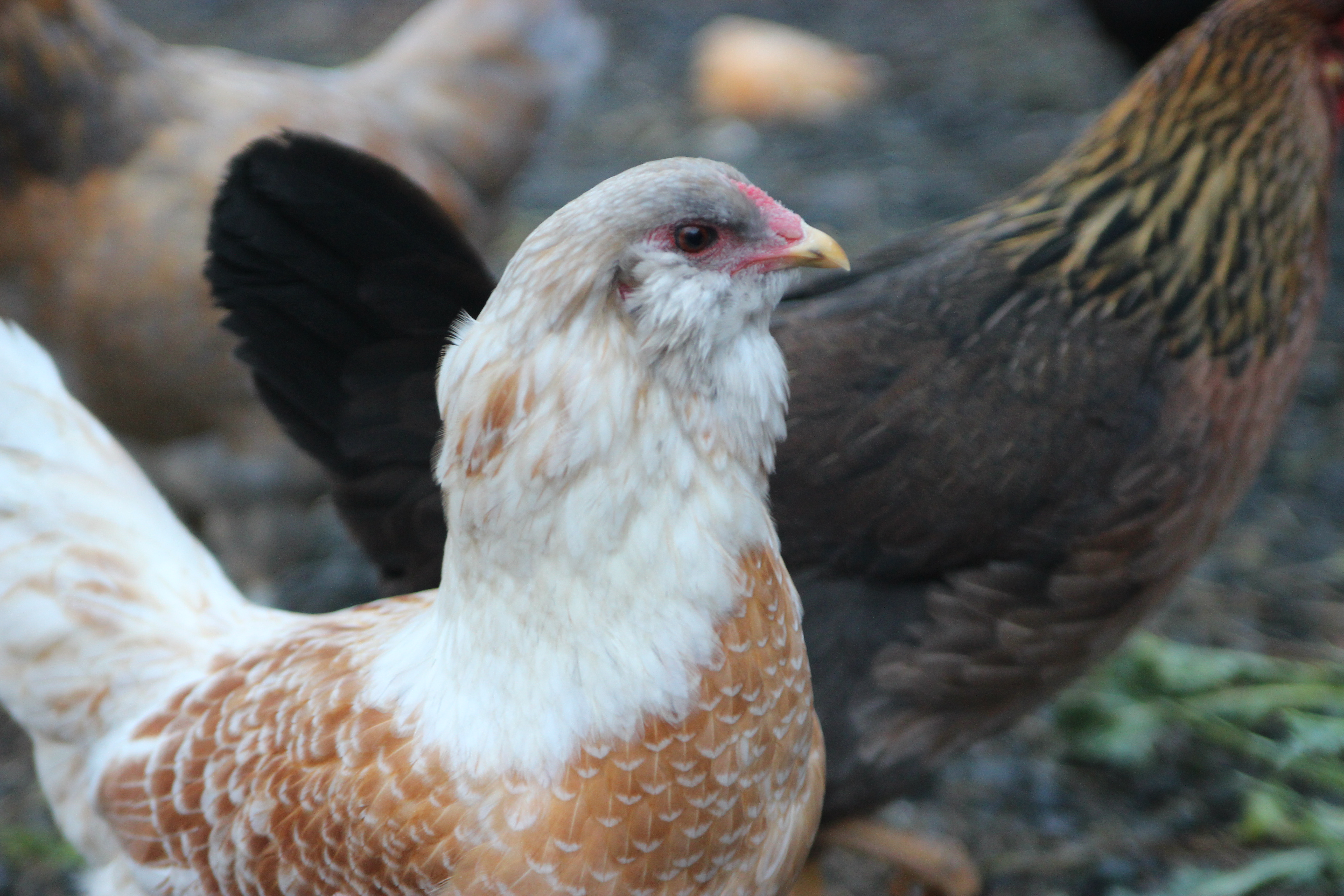
- WATER! I know that it doesn’t need to be said that chickens needs water, but just know that if chickens do not get the proper amount of water, they may not lay. Even just running out of water can cause the chicken to miss the egg that you are looking for that day.

- Nesting Places. Chickens have a natural desire to make a nest. If you do not provide a private nest box with padding, they will find creative places in your yard, and make their own. With the nest box that you provide, there should be about one nest box for every two to three chickens. Often this is part of the area where the chickens are locked up at night in case they want to lay eggs before you let them out in the morning. My chickens have decided that this nest box makes a great place to sleep at night, so I end up kicking them out every night (so there won’t be poo all over their eggs).

- Heat. Chickens are naturally outdoor animals, and they do not need a heat lamp. In fact, there have been many coop, and barn fires due to the fact that chickens have knocked down their heat lamp. What chickens do need is a covered, ventilated area. Even in extremely cold areas, such as Minnesota, most chickens will be fine in the winter. Some roosters may get frostbite on their comb, but that is treatable as well. What is important is that there is a coop, or barn for the chickens to go to that is draft free. In really cold areas where it gets to below freezing, there may need to be some insulation in these areas. The main worry in the winter is to keep water from freezing. You can choose to get a heated watering dish, or you could switch out the water every time that it freezes. Chickens also enjoy warm treats such as cooked oatmeal, or other goodies.
Chicks that are not full feathered yet need a lot more heat. If you are to buy chicks at the feed store, then know that they need a heat lamp until they are fully feathered.
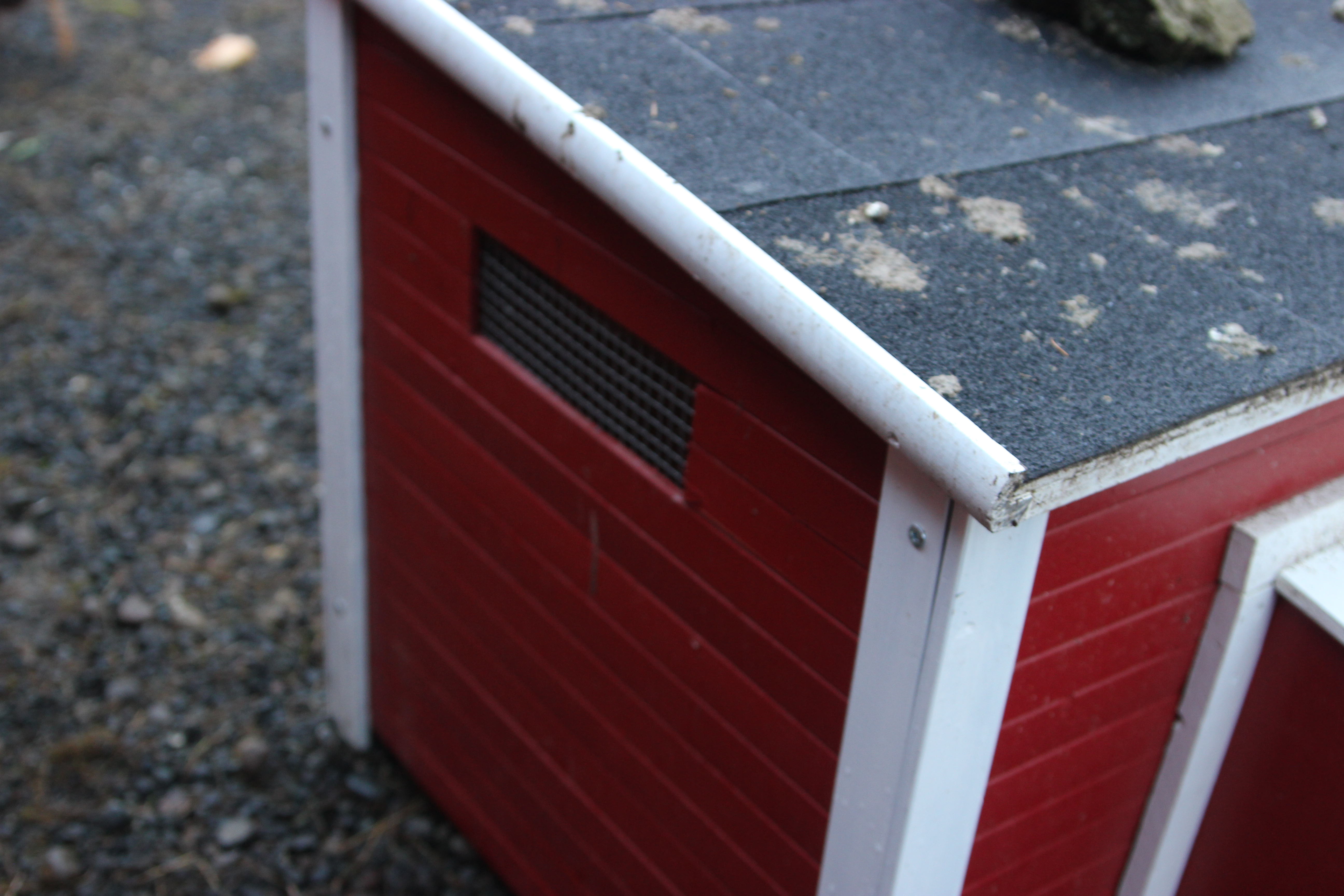
Is that it? Any one of these tips could be a blog post in itself. If you have any questions, please comment with them below and I will answer to the best of my ability. I gathered my information from other poultry blogs, other backyard chicken farmers, and from the book: Storey’s Guide to Raising Poultry, and of course years of personal experience. Raising chickens is not for the feint at heart, but the payout in the end is rewarding if you enjoy raising pets and/or livestock in order to provide food for you and your family!
